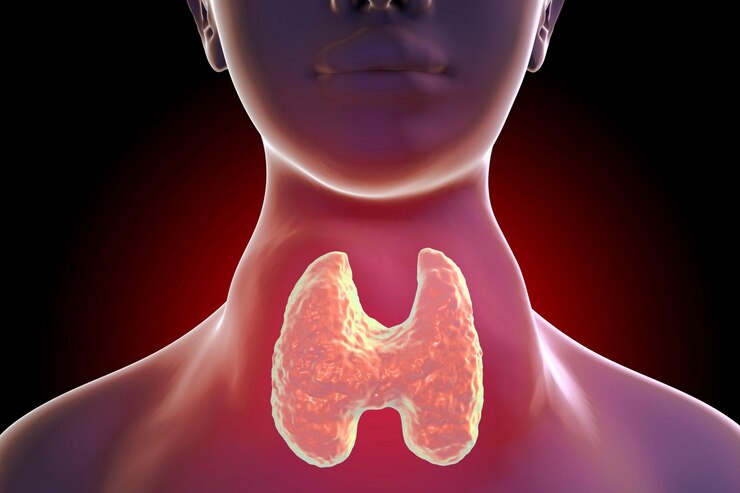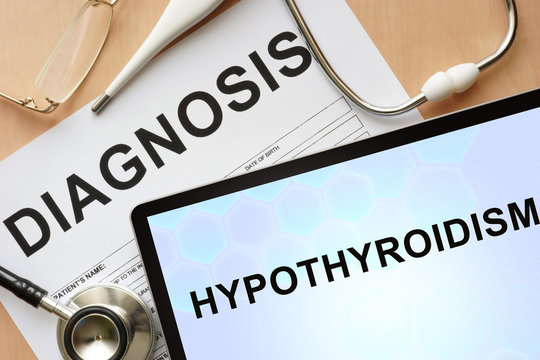Research And Innovations In Hypothyroidism Management: Emerging Therapies And Approaches
Hypothyroidism, a common endocrine disorder characterized by inadequate thyroid hormone production, affects millions of individuals worldwide. While conventional treatment with thyroid hormone replacement therapy, typically in the form of levothyroxine, is effective for most patients, ongoing research and innovative approaches are continually expanding the therapeutic landscape for hypothyroidism management. This article delves into the latest advancements in hypothyroidism management, highlighting emerging therapies and approaches that offer promise for improving patient outcomes and quality of life.
Understanding Hypothyroidism: A Complex Endocrine Disorder
Before delving into emerging therapies, it’s essential to understand the underlying mechanisms and challenges associated with hypothyroidism. Hypothyroidism can result from various factors, including autoimmune thyroiditis (such as Hashimoto’s thyroiditis), iodine deficiency, thyroid surgery, or certain medications. Common symptoms include fatigue, weight gain, cold intolerance, constipation, and cognitive impairment. Left untreated, hypothyroidism can lead to serious complications, including cardiovascular disease, infertility, and mental health issues.
Targeting Thyroid Hormone Pathways: Novel Drug Therapies
One area of research focuses on developing novel drug therapies that target different aspects of thyroid hormone regulation. For example, researchers are exploring agents that enhance thyroid hormone synthesis or inhibit the enzymes involved in thyroid hormone metabolism. These medications aim to optimize thyroid hormone levels more effectively and address the persistent symptoms experienced by some hypothyroid patients despite standard treatment. While still in the experimental stages, these drug therapies hold potential for improving outcomes in refractory cases of hypothyroidism.
Thyroid Hormone Analogues and Formulations: Improved Pharmacokinetics
Another area of innovation involves developing thyroid hormone analogs or alternative formulations with improved pharmacokinetic properties. Traditional levothyroxine therapy may not adequately replicate the natural circadian rhythm of thyroid hormone secretion, leading to fluctuations in serum hormone levels and suboptimal symptom control for some patients. Novel formulations, such as sustained-release or once-daily dosing options, aim to provide more stable and sustained thyroid hormone levels, potentially improving symptom management and patient adherence.
Personalized Medicine Approaches: Tailoring Treatment to Individual Needs
Advancements in genetics and molecular diagnostics have paved the way for personalized medicine approaches in hypothyroidism management. By analyzing genetic markers associated with thyroid function and drug metabolism, clinicians can tailor treatment regimens to individual patients’ needs. Pharmacogenomic testing, for example, can help identify genetic variants that influence levothyroxine metabolism, guiding dose adjustments and optimizing treatment outcomes. Additionally, molecular profiling of thyroid nodules may aid in risk stratification and decision-making for patients with thyroid cancer or nodular goiter.
Nutritional Interventions and Supplements: Supporting Thyroid Health
Nutritional interventions and dietary supplements are gaining attention as adjunctive therapies for hypothyroidism management. Certain micronutrients, such as iodine, selenium, and zinc, play critical roles in thyroid hormone synthesis and function. Research suggests that optimizing nutrient status through diet or supplementation may help improve thyroid function and alleviate symptoms in some patients. Moreover, emerging evidence supports the role of probiotics and gut health in modulating thyroid autoimmunity and inflammation, highlighting the potential of dietary interventions in hypothyroidism management.
Telemedicine and Remote Monitoring: Enhancing Access to Care
The integration of telemedicine and remote monitoring technologies is transforming the delivery of hypothyroidism care, particularly in underserved or remote areas. Telemedicine platforms enable patients to consult with endocrinologists or thyroid specialists remotely, facilitating timely access to expert care and reducing geographical barriers. Remote monitoring devices, such as wearable sensors or smartphone apps, allow patients to track their symptoms, medication adherence, and thyroid function tests from the comfort of their homes. These digital tools empower patients to actively participate in their care and facilitate proactive management of hypothyroidism.
Conclusion
Research and innovations in hypothyroidism management are opening new avenues for optimizing treatment outcomes and addressing the diverse needs of patients with this complex endocrine disorder. From novel drug therapies and personalized medicine approaches to nutritional interventions and telemedicine solutions, the evolving landscape of hypothyroidism care offers hope for improved symptom control, enhanced quality of life, and better overall health outcomes for individuals living with this condition. As our understanding of thyroid physiology and pathophysiology continues to advance, the future holds promise for further innovation and progress in hypothyroidism management.








